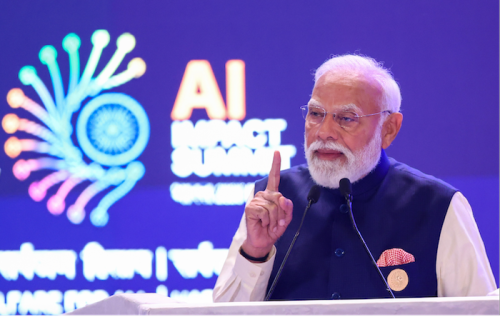Artificial Intelligence (AI) as a main competitive advantage for the 21st century is rapidly gaining momentum on the world stage. Its accelerating capabilities and potential are so significant that it will transform nearly all aspects of our societies, including the economy, education, healthcare, the law, national security, and beyond. It is becoming the driver for growth, competitiveness, and innovation. Non-adoption can be a critical risk for businesses and governments. Organizations that fail to adapt to the fast-paced AI-changing environment could quickly find their business model become obsolete.
The new AI generation is expeditiously and materially advancing into territories that were thought to be reserved for humans. AI is moving way beyond organizing and providing information into the realms of generating knowledge and somewhat exhibiting creativity.
Driven by the potentials, benefits, opportunities, and risks a global race for AI leadership has already begun to be at the forefront of AI development and application. The United States was the first country to implement a comprehensive AI research and development strategic plan in May 2016. In February 2019, the US President signed Executive Order 13859 Maintaining American Leadership in Artificial Intelligence. In July 2017, China released its Next Generation AI Development Plan to become the world leader in the field by 2030. In April 2018, the European Union set the approach for the European AI Strategy aims at making the EU a world-class hub for AI and ensuring that AI is human-centric and trustworthy.
The AI race is not exclusive to AI development and application but also extends to AI governance. The importance of AI regulations comes from the significant role they will play in shaping AI’s future and will determine who will emerge as the true leaders in this field. Today frontrunners in AI regulations and governance endeavors are the United States, China, and the EU. The European Union is taking a proactive approach by introducing strict rules aimed at protecting citizens’ privacy and ensuring the ethical use of AI. China is also taking a proactive and leading approach; its 2022 regulation on recommendation algorithms aims to gain meaningful insight into the functioning of algorithms and ensures they perform within the regulators’ acceptable bounds. The United States is taking a more laissez-faire approach, seeking to create a more favorable environment for AI innovation.
The original article was published at Jurist.
The Boston Global Forum (BGF), in collaboration with the United Nations Centennial Initiative, released a major work entitled Remaking the World – Toward an Age of Global Enlightenment. More than twenty distinguished leaders, scholars, analysts, and thinkers put forth unprecedented approaches to the challenges before us. These include President of the European Commission Ursula von der Leyen, Governor Michael Dukakis, Father of Internet Vint Cerf, Former Secretary of Defense Ash Carter, Harvard University Professors Joseph Nye and Thomas Patterson, MIT Professors Nazli Choucri and Alex ‘Sandy’ Pentland. The BGF introduced core concepts shaping pathbreaking international initiatives, notably, the Social Contract for the AI Age, an AI International Accord, the Global Alliance for Digital Governance, the AI World Society (AIWS) Ecosystem, and AIWS City.











